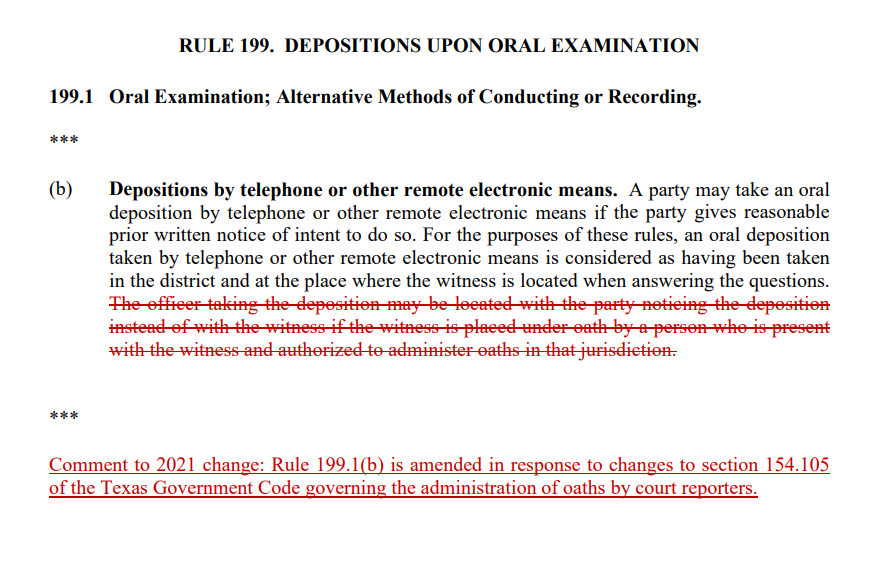The Legality and Validity of Remote Depositions
In the dynamic landscape of legal proceedings, the surge in remote depositions has ignited discussions on their validity and legality. This blog post delves into the nuances of remote depositions, focusing on virtual meeting software like Zoom, and sheds light on the significance of Texas Rule 199.1(b). This rule serves as a crucial legal framework, navigating the complexities and ensuring the legitimacy of modern approaches to testimony.
The Shifting Paradigm: Remote Depositions in Focus
In recent years, remote depositions have emerged as a transformative tool for legal professionals, offering unprecedented flexibility and efficiency. However, the legality of such proceedings, particularly over virtual meeting software, has been a point of scrutiny. Concerns about admissibility and compliance with established legal standards have fueled discussions on the evolving nature of deposition practices.
Texas Rule 199.1(b): Guiding the Way Forward
Amidst these discussions, Texas Rule 199.1(b) stands out as a guiding light. This rule explicitly permits depositions by telephone or other electronic means, providing a robust legal foundation for the incorporation of modern technologies in the deposition process. Recognizing the shifting landscape of communication technologies, the rule asserts their role in facilitating efficient and legally sound legal proceedings.

Legitimacy in the Courtroom: Admissibility of Remote Depositions
The pivotal question centers around the validity and admissibility of remote depositions in a courtroom setting. With the backing of Texas Rule 199.1(b), the answer is a definitive yes. Courts acknowledge the importance of adapting to technological advancements, and when remote depositions are conducted in accordance with established rules and procedures, they are deemed valid and admissible.
Navigating Compliance: Upholding Legal Standards
While the permission to conduct depositions remotely is a positive step forward, legal professionals must ensure strict compliance with Texas Rule 199.1(b) to maintain the integrity of the deposition process. This involves meticulous attention to details such as:
Notice and Agreement
Providing proper notice to all involved parties and obtaining mutual agreement for a remote deposition is a foundational step in compliance.
Technical Infrastructure
Ensuring a secure and reliable technical infrastructure is paramount. This includes a stable internet connection, appropriate virtual meeting software, and adherence to cybersecurity measures.
Oath Administration
The administration of the oath is a critical aspect of any deposition. Legal professionals must ensure that the oath is properly administered, even in a virtual setting.
Recordkeeping
Adhering to recordkeeping requirements is essential. This involves creating and maintaining a clear record of the deposition proceedings, including any exhibits presented.
Embracing Efficiency in Legal Practice
As the legal system adapts to the digital age, the validity of remote depositions, supported by Texas Rule 199.1(b), underscores the adaptability of the legal system. By seamlessly integrating technology while upholding stringent legal standards, legal professionals can harness the benefits of remote depositions without compromising on the validity and legality of the process.
In conclusion, remote depositions, especially over virtual meeting software like Zoom, are not only valid but are also bolstered by the provisions of Texas Rule 199.1(b). Legal professionals can confidently incorporate these modern practices, ensuring that the wheels of justice continue to turn efficiently in the face of evolving circumstances.
